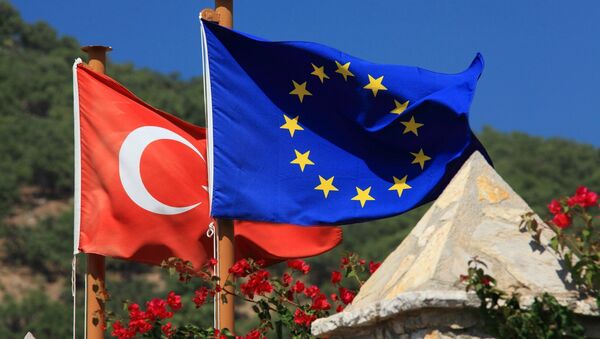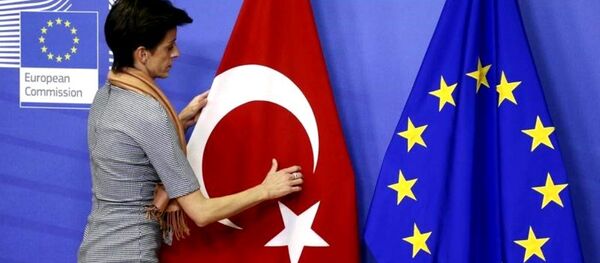Meanwhile, Turkish media reports that the EU Commissioner for European Neighborhood Policy and Enlargement, Johannes Hahn, will visit Ankara on July 6 as part of the EU-Turkey dialogue, which began on May 25.
Commenting in an interview with Sputnik Turkey on the current relations between Ankara and Brussels ahead of the G20 summit in Hamburg, Turkish political analyst Sertac Aktan said that even though the European Parliament’s strongly-worded recommendations are not mandatory, they could still impact the EU’s further action.
Sertac Aktan said that Brussels will not engage in full-scale accession talks with a country, which wants to bring back the death penalty because this flies in the face of the fundamental values the EU adheres to.
He added, however, that Ankara has a strong bargaining chip in the form of the agreement on refugees it signed with the EU last year, and that the two sides are engaged in what he described as a “cat-and-mouse game.”
“Each side is making harsh statements, but neither one risks taking the responsibility for wrapping up the talks on Turkey’s EU membership. Brussels is wary of the migration problem Turkey help to deal with, and Ankara is a NATO member and has strong trade and other economic ties with the EU it would hate to lose,” Sertac Aktan noted.
Talks on Turkey accession to the European Union began in 2005, but have been repeatedly suspended due to various obstacles, such as the failed July 2016 coup attempt.
In August 2016, Turkish President Recep Tayyip Erdogan warned that Ankara would withdraw from the deal if the European Union failed to grant a visa waiver for Turkish citizens.
A number of EU politicians said in April that the issue of Turkey’s EU membership was no longer on the bloc's immediate agenda after the outcome of the country's constitutional referendum on expansion of presidential powers, as well as other issues, such as the possible reinstatement of capital punishment.




